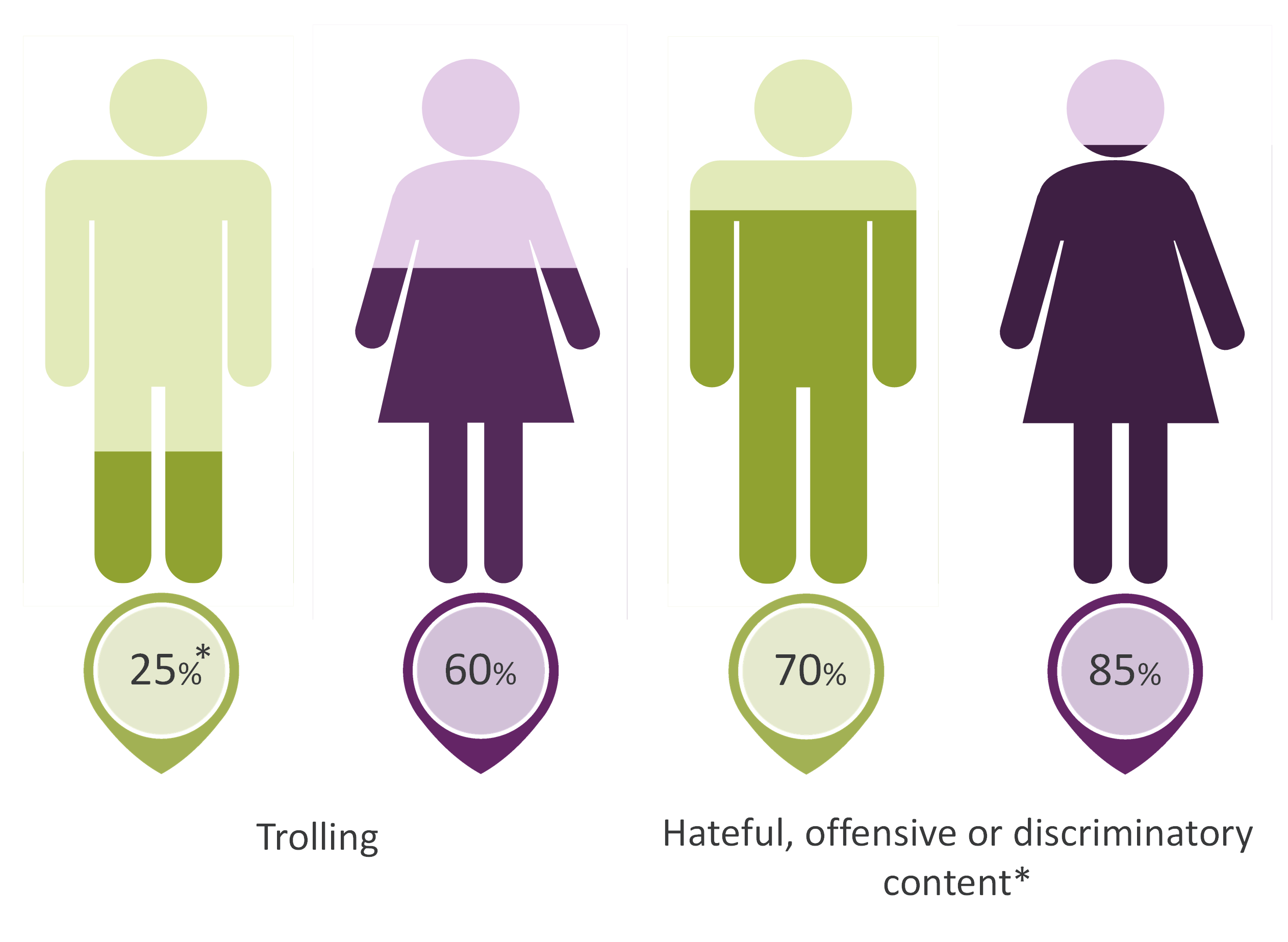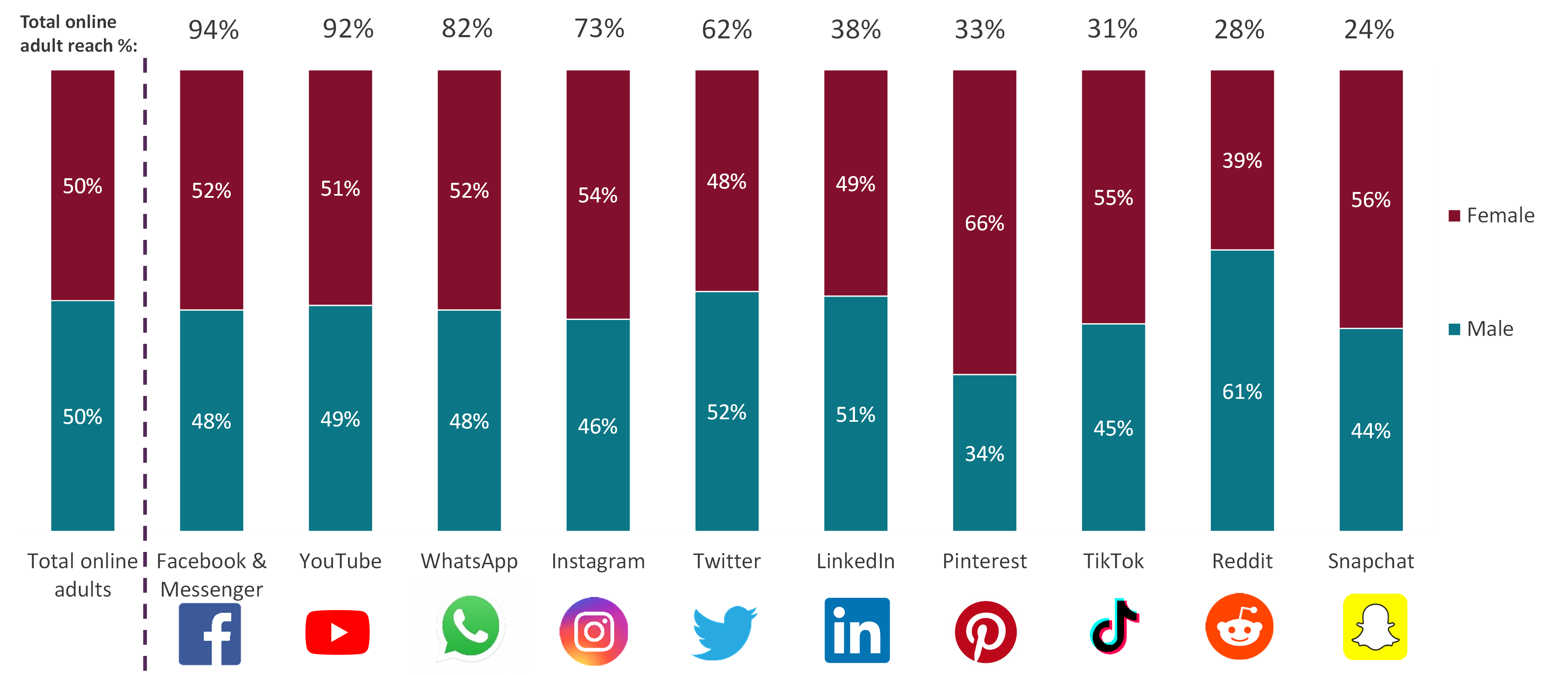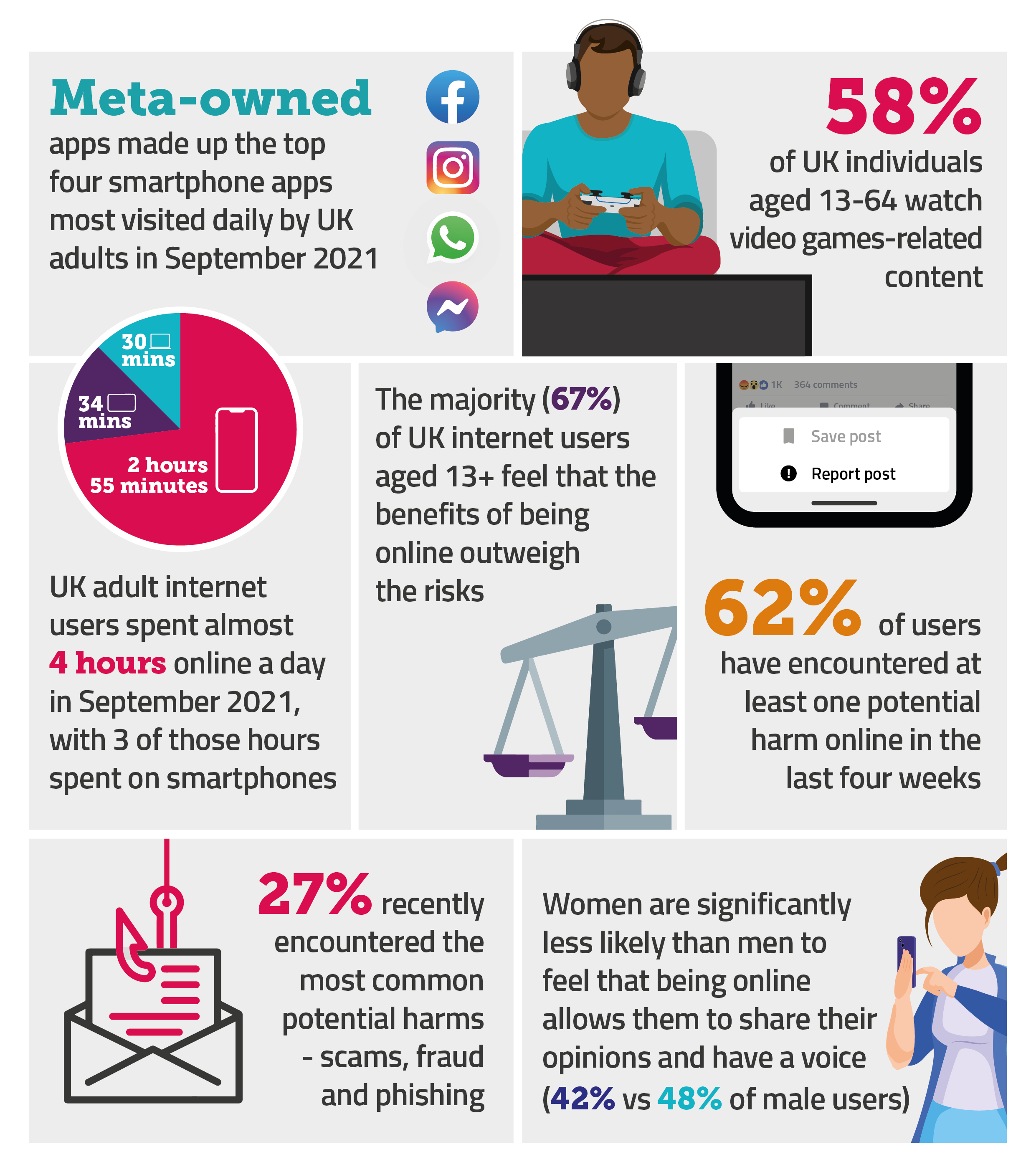- Ofcom finds women less confident about their online safety than men
- Women more affected by discriminatory, hateful and trolling content
- Women feel less able to have a voice and share opinions online
- Dame Melanie Dawes: tech firms must listen and act on safety concerns of female users
Real-world concerns about women’s safety and wellbeing are mirrored in the online world, according to figures from Ofcom’s major study into the nation’s online lives.
Our findings reveal that women are less confident about their online safety than men, more negatively affected by discriminatory, hateful and trolling content, and feel less able to have a voice and share opinions online.
We are today calling for technology firms, who build the sites and apps used by millions of people in the UK, to act now to make the online world a safer space for women and girls.
UK women are avid users of social media platforms,[1] spending more than a quarter of their waking hours online – around half-an-hour each day more than men (4hrs 11min vs. 3hrs 46min). But for many women, life online is not always a positive experience.
Ofcom’s study found that while the majority of people say the benefits of being online outweigh the risks, women are considerably less likely than men to agree (63% vs. 71%). Similarly, fewer women feel confident that they won’t come to harm online (64% vs. 73% of men).
Female participants in our research say they feel less able to share their opinions and have a ‘voice’ online (42% compared to 48% of men). Women are also less likely than men to feel free to be themselves online (33% vs. 39%). For many, life online can replicate harmful discriminatory dynamics that exist in wider society.
Women feel impact of online harm
These findings form part of Ofcom’s annual Online Nation report[2] which delves into our online lives and the tech companies behind them. We have also published a summary of the major online trends seen over the last year.[3]
This year, the report includes detailed research into the harms people encounter online. It finds that, in the last four weeks, women who go online are more likely than men to have seen or experienced:
- content relating to negative body image, excessive dieting or eating disorders (9% vs. 6%)
- misogynistic content – that which objectifies, demeans or otherwise negatively portrays women (9% vs. 7%)
- content relating to self-harm or suicide (4% vs. 2%)
Men who go online are more likely than women to have seen or experienced:
- scams, fraud and phishing content (30% vs. 25%)
- misinformation (25% vs. 19%)
- content depicting violence (11% vs. 7%)
Overall, men are more likely than women to have experienced potentially harmful online behaviour or content in the last four weeks (64% vs 60%).[3] But the study shows that women are more negatively affected by the harmful content they encounter.
 More than two in five women (43%) say they felt bothered by harmful content they recently came across online, compared to a third of men (33%).
More than two in five women (43%) say they felt bothered by harmful content they recently came across online, compared to a third of men (33%).
Women find hateful, offensive or discriminatory online content particularly concerning compared to men (85% vs. 70% of men), as well as trolling (60% vs. 25% of men).
Women from a minority ethnic background are particularly likely to be troubled by their harmful online experiences (52% compared to 42% of white women). They are also more likely to have experienced at least one potential harm in the last four weeks (67% vs. 61% of white women).
Impact on women's mental health
Our researchers also asked people to share their feelings about how going online impacts their mental health.
Women aged 18-34 were more likely than any other group to disagree with the statement that “being online has a positive effect on my mental health” (23% vs. 14% for the average UK adult, and 12% of men). Notably, nearly a quarter (23%) of Black women also disagreed with this statement, higher than white women (16%) and Asian women (12%).
Women in particular want better protection
Half of adult internet users support further online safety measures, with more women in favour than men (56% vs. 43%). Women also regard the protection of online users as a priority – more so than men (44% vs. 33%).
The future Online Safety Act will place duties on tech firms, which will help ensure all users – including women and girls – are better protected against online harm. As online regulator, Ofcom will make sure tech companies meet their duties to improve user safety while championing the great things about the internet, including free speech.
The message from women who go online is loud and clear. They are less confident about their personal online safety, and feel the negative effects of harmful content like trolling more deeply.
We urge tech companies to take women’s online safety concerns seriously and place people’s safety at the heart of their services. That includes listening to feedback from users when they design their services and the algorithms that serve up content.
Dame Melanie Dawes, Ofcom's Chief Executive
Notes to editors
- Women are heavier users than men of seven of the top 10 social media platforms.

- This year's report draws on data from multiple sources, including Ofcom's Online Experience Tracker – a new tracking study examining the positive and negative online experiences of UK users. Fieldwork for the Online Experiences Tracker was conducted in November-December 2021 among a UK-representative sample of 6,619 online users aged 13 to 85. There is an interactive report where you can explore the data by various different demographics.






